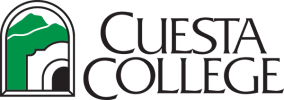
Program Summary
PK – 3 PATHWAY FOR ELEMENTARY EDUCATORS - Certificate of Achievement
2023 - 2024, 2024 - 2025, 2025 - 2026
The PK – 3 Pathway for Elementary Educators Certificate of Achievement provides students with a foundation in child development, including understanding typical/atypical behaviors, applying developmental theories to learning, addressing challenging behaviors in the classroom, working effectively with diverse student populations, and designing developmentally and culturally appropriate curriculum. The PK – 3 Pathway for Elementary Educators Certificate of Achievement meets the California credential requirement of 24 ECE/CD units for TK teachers.
Career Opportunities
Required Courses (24 units)
Units: 24.0
CDFS 201
CHILD GROWTH AND DEVELOPMENT
3.0
CDFS 202
CHILD, FAMILY, AND COMMUNITY
3.0
CDFS 203
CURRICULUM FOR YOUNG CHILDREN
3.0
CDFS 204
HEALTH, SAFETY, AND NUTRITION
3.0
CDFS 205
INTRODUCTION TO EARLY CHILDHOOD EDUCATION: PRINCIPLES AND PRACTICES
3.0
CDFS 206
OBSERVATION, RECORDING TECHNIQUES AND ASSESSMENT
3.0
CDFS 215
CHILDREN IN A DIVERSE SOCIETY
3.0
CDFS 234
CHILDREN'S BOOKS AND NARRATIVES
3.0
Total: 24.0
Program Outcomes
Apply knowledge of child development theories to working with young children.
Exam questions and theory diagrams
Apply foundational knowledge of child development, birth to age eight, including typical/atypical behaviors and major milestones. Interpret children's behavior within a cultural and family context and recognize the importance of the adult-child relationship for healthy development.
Exam questions, personal reflections, and group discussions
Apply foundational knowledge in Child Development to address challenging behaviors in the classroom, using developmentally and culturally appropriate strategies, and to work effectively with diverse student populations, recognizing unique challenges and histories.
Exam questions, child observations and vignettes
Identify early childhood educators' professional roles, requirements, and responsibilities, including observation and assessment, reflection, effective communication, ethical practice, responsibilities to children and families, and commitment to ongoing professional development.
Exam questions, group discussions, personal reflections.
Design and implement curriculum that is developmentally, culturally, and linguistically appropriate, based on foundations of early childhood education and knowledge of individual children.
Curriculum portfolio, essay questions, group work.